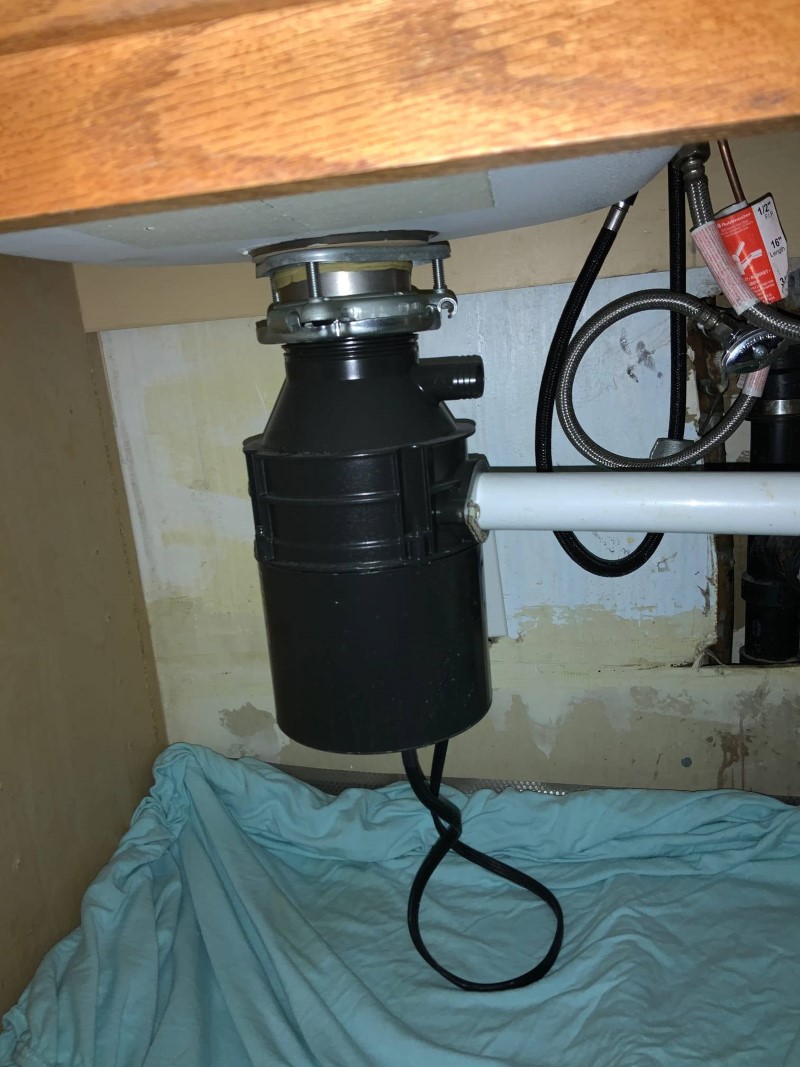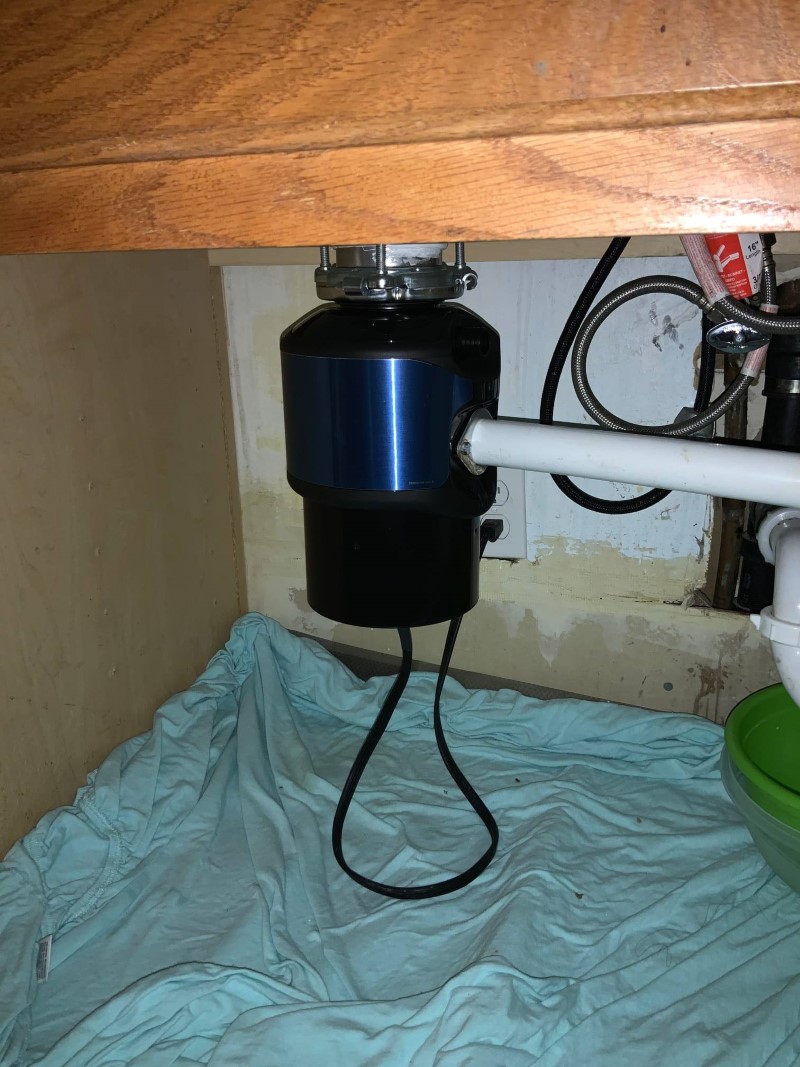Leading Methods for Resolving a Leak in Your Garbage Disposal
Leading Methods for Resolving a Leak in Your Garbage Disposal
Blog Article
Right here below you can discover more reliable data involving Tips on Fixing a Leaking Garbage Disposal.

Garbage disposals are crucial kitchen home appliances that help in throwing away food waste effectively. Nonetheless, a leaking waste disposal unit can be an irritating and unpleasant trouble to take care of. The good news is, numerous leakages can be fixed easily with a few straightforward steps. In this write-up, we will discuss how to deal with a dripping garbage disposal successfully.
Intro
Garbage disposals are set up under kitchen area sinks and are made to shred food waste right into smaller sized items, permitting it to pass through the pipes system quickly. While these tools are normally dependable, leaks can take place over time as a result of deterioration, loosened connections, or damage to the device.
Typical Root Causes Of Leaks in Garbage Disposals
Worn Seals and Gaskets
Seals and gaskets play a crucial role in avoiding water from leaking out of the waste disposal unit. Gradually, these parts can deteriorate, bring about leaks around the disposal device.
Loose Connections
The links between the garbage disposal and the plumbing system can end up being loose in time, creating water to leakage out during operation.
Splits or Openings in the Disposal Device
Physical damage to the garbage disposal, such as splits or holes in the housing, can additionally lead to leakages.
Determining the Source of the Leakage
Prior to trying to fix a leaking garbage disposal, it is vital to identify the resource of the leakage. This can commonly be done via aesthetic inspection or by performing basic examinations.
Visual Examination
Inspect the waste disposal unit system carefully for any kind of indications of water leakage. Pay very close attention to areas around seals, gaskets, and connection factors.
Examining for Leakages
One method to examine for leaks is by running water through the disposal unit and checking for any type of noticeable indications of leak.
Tools and Products Needed for Fixing a Leaking Garbage Disposal
Prior to starting the repair service procedure, gather the required tools and materials, consisting of a screwdriver, flexible wrench, plumbing's putty, replacement seals or gaskets, and epoxy or patching material for repairing fractures or openings.
Step-by-Step Guide to Repairing a Dripping Garbage Disposal
Turn Off the Power
Prior to trying any type of repair work, make certain that the power to the waste disposal unit system is shut off to avoid the danger of electric shock.
Find the Leakage
Determine the specific area of the leakage and determine the reason.
Tighten Connections
Utilize a wrench to tighten any type of loose links in between the disposal system and the plumbing system.
Replace Seals or Gaskets
If the leak results from used seals or gaskets, remove the old parts and change them with brand-new ones.
Patching Fractures or Holes
For splits or holes in the disposal device, usage epoxy or an appropriate patching product to seal the broken area.
Checking the Garbage Disposal After Repair Service
When the repair is total, evaluate the garbage disposal by running water with it to make sure that the leak has been fixed.
Preventive Upkeep Tips to Stay Clear Of Future Leaks
To avoid future leakages, it is vital to do normal maintenance on your waste disposal unit. This consists of maintaining it tidy, preventing placing non-food items or difficult objects down the disposal, and periodically checking for leaks or various other concerns.
Final thought
In conclusion, fixing a dripping waste disposal unit is a relatively simple procedure that can be completed with basic devices and products. By adhering to the actions detailed in this short article and practicing precautionary maintenance, you can keep your garbage disposal in good working problem and stay clear of expensive repairs in the future.
HERE’S HOW TO FIX YOUR GARBAGE DISPOSAL
WHAT TO DO IF SOMETHING IS STUCK IN YOUR GARBAGE DISPOSAL
If the impeller won’t turn, there’s probably something stuck in the disposal. It could be a steak bone or peach pit, although plumbers report pulling all sorts of inappropriate objects out of disposals, such as bottle caps or aluminum foil. Make sure power to the disposal is off, and look inside to see if you can see the source of the jam.
Never stick your fingers in a disposal. Pull out anything you see with tongs or pliers.
If the disposal still won’t work, it may be time to call a plumber or consider buying a new disposal. GEM Plumbing & Heating is here for all of your garbage disposal needs.
WHAT TO DO IF YOUR GARBAGE DISPOSAL DRAIN IS CLOGGED
Take everything out from underneath your sink and put a bucket or other container under your disposal to catch any water that drains out. Disconnect your disposal from the power supply. If it’s plugged into a wall outlet, unplug it. If it’s hardwired into an electrical box, go to the electrical panel and turn off the breaker for the disposal. Pour ¼ cup of baking soda into the drain, followed by ½ cup of white vinegar. Give the solution a few minutes to fizz and do its work. Look into the disposal with a flashlight to see if you can see an object that might be causing the clog. If you see it, remove it using tongs or pliers. MORE TIPS ON DEALING WITH A CLOGGED GARBAGE DISPOSAL
Never use drain cleaner in a garbage disposal. It can damage the plastic parts inside the disposal. You can also be splashed with the caustic liquid while working to clear the clog. Beware! Never stick your fingers into a garbage disposal. Trust us — not a good idea. In many instances, your dishwasher drains through your garbage disposal. This allows the disposal to grind any large food particles that may be drained out of your dishwasher. There are some jurisdictions, however, where the plumbing code prohibits such a connection. WHAT TO DO WHEN YOUR DISHWASHER DRAINS THROUGH THE DISPOSAL
Run some water in the sink so your plunger has at least a ½-inch of water to create a seal and plunge vigorously up and down several times. You may need to repeat this several times. Run hot water down the drain to clear any residue that remains.

As a devoted reader on Why Is , I think sharing that short article was mandatory. Sharing is good. One never knows, you may just be doing someone a favor. Thanks a lot for your time spent reading it.
Details Here Report this page